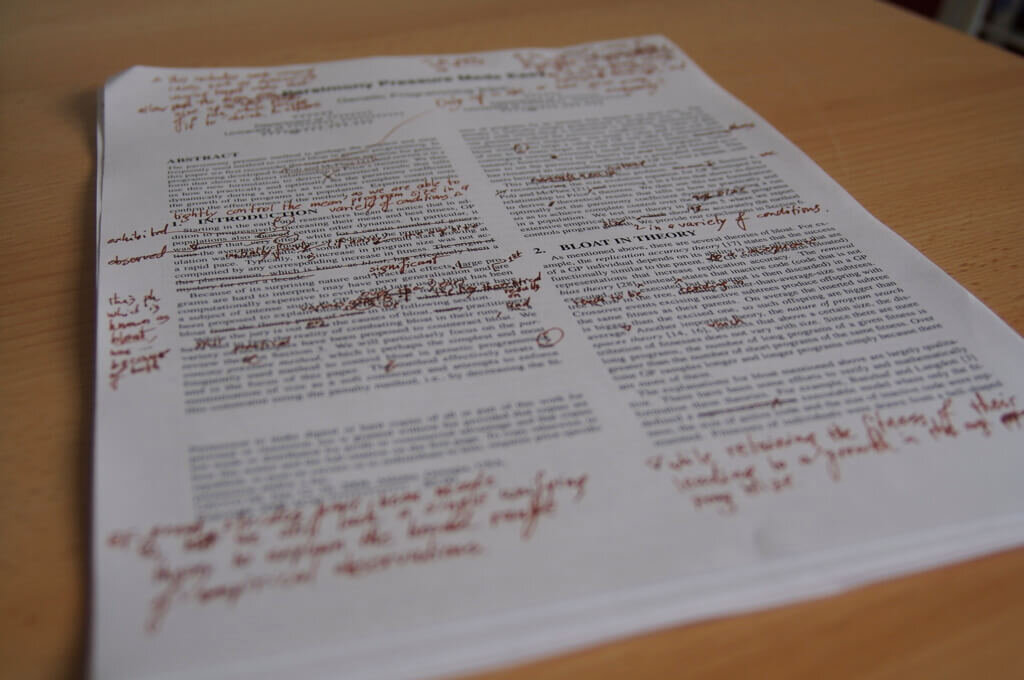Research requires teachers to keep up-to-date on contemporary issues, making their class a space for topic reflection, focusing on students’ reality.
By Miguel Zaldívar Dávalos and José Carlos Vázquez Parra
What is research? Many academics believe that research refers solely to the methodology-based search for knowledge, but it is much more than that. In fact, it forms an essential part of academic work, because if teachers are not current and well-informed in their discipline and do not participate actively in the research in question, how can we expect them to teach a truly up-to-date class? From this perspective, we can affirm that anyone who knows how to research and apply this knowledge in the classroom has the capacity to teach better. Research competencies make it possible to develop critical thinking, question the established order and propose answers based on academically optimal arguments, providing the opportunity to generate innovation in our teaching practice.
This leads us to another question: What is the point of finding answers if we are not going to share them? The Scientific Journal Network of Latin America and the Caribbean, Spain and Portugal (Redalyc) answers this question very clearly and displays the following phrase on their website: “Science that cannot be seen, does not exist”.
>
“Research is an essential part of academic work. Who knows how to investigate and apply this knowledge in the classroom has all the ability to teach better.”
Based on this premise, and within a reference framework that places research as a cornerstone of educational processes, several institutions consider the need to promote intellectual vitality among its faculty, in order to foster the possibility of generating knowledge, but also of sharing it through a scientific dissemination process.
Unfortunately, only a few academic areas manage to respond to this need and, in the majority of cases, the authors are usually the same researchers who have already published. In areas such as the humanities, social sciences, or even departments related to administration and business, production can be highly variable and is mostly related more to the individual production of some of their professors than to an area’s collegial work.
As a result, a group of professors from the Department of Humanistic Studies of Tecnológico de Monterrey has developed a five-step model with the aim of promoting the area’s collegial research, production and dissemination. In this way, they created an internal research unit, whose primary objective is to promote research and academic and informational publication among the department’s faculty.
>
“The development of research competencies allows teachers to be in a constant process of improvement, which positively impacts the mastery of their discipline.”
This project specifically seeks in the medium and long terms to: 1) Foment the connection of research and academic publication with faculty from other departments; 2) promote the dissemination of the products, findings and academic research activities through diverse media; and 3) accompany and guide the department faculty in the Mexican National System of Researchers (SNI) membership process.
Five-step model for promoting academic dissemination
-
Definition of lines of research and application of knowledge
-
Generation of a database of area-related academic journals
-
Capitalization of knowledge generated in the area
-
Structuring work teams
-
Writing and submitting papers
After just over a semester of activities (May 2017 – January 2018), the research cell already has some results, showing that, at least in the short term, it could be a good technique for promoting research focused on an area of knowledge, among both consolidated professors and those who are new to research.
Consequently, the cell participated in the generation of eight academic papers that are under peer review, supported the publication of seven articles and reviewed another six that have already been approved for publication. The cell also participated in the publication of a coordinated book, as well as in the review of another one in which more than 21 professors from the Campus participated. These initial results have allowed us to see a clear improvement in the area’s academic production.
The development of research competencies places teachers within an ongoing process of improvement, which has a clear, positive impact on the available tools and information in relation to their discipline. As with refresher courses, research requires teachers to keep up-to-date on contemporary issues, making their class a space for topical reflection and focused on students’ reality. When teaching young people, a current approach can make the difference between a challenging, interesting class and a boring, out-of-date one.
One of the greatest responsibilities for every teacher is currency and intellectual vitality in his or her field, to generate spaces that promote these intellectual processes and, in turn, scientific dissemination. These actions are ideal for achieving the improvement, not only of academics and the prestige of the institution as a whole, but also, of each classroom and each group in which these teachers participate.
About the authors
Miguel Zaldívar Dávalos (mzaldivar@itesm.mx) is Director of the Regional Department of Humanistic Studies of Tecnológico de Monterrey in Guadalajara.
José Carlos Vázquez Parra (jcvazquezp@itesm.mx) is a Professor in the Regional Department of Humanistic Studies of Tecnológico de Monterrey in Guadalajara.
This article from Observatory of the Institute for the Future of Education may be shared under the terms of the license CC BY-NC-SA 4.0 
)
)











)
Sofía García-Bullé
Sofía García-Bullé
Sofía García-Bullé